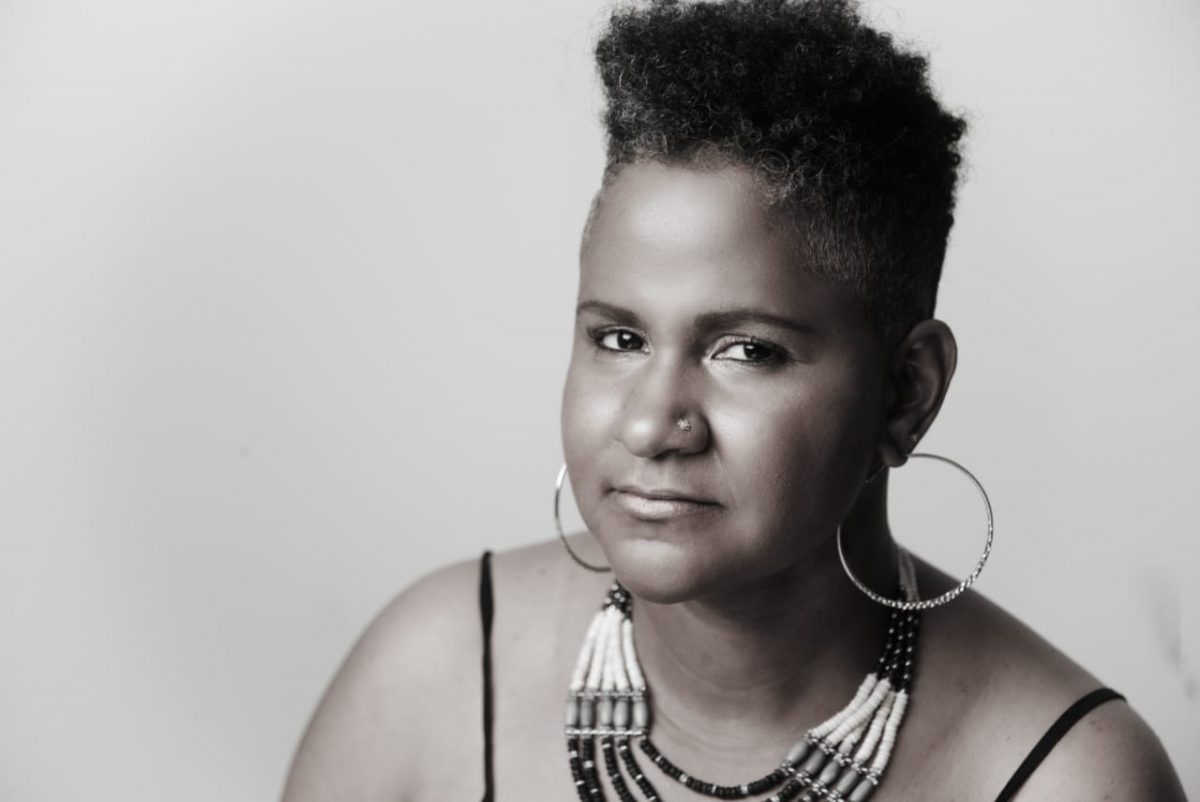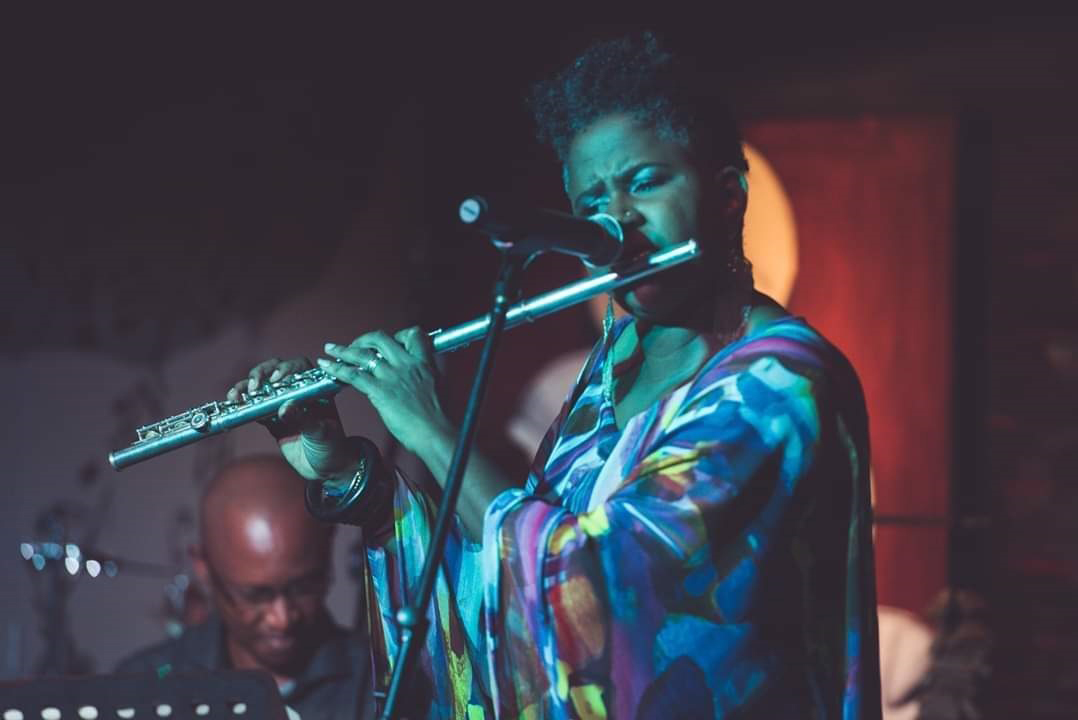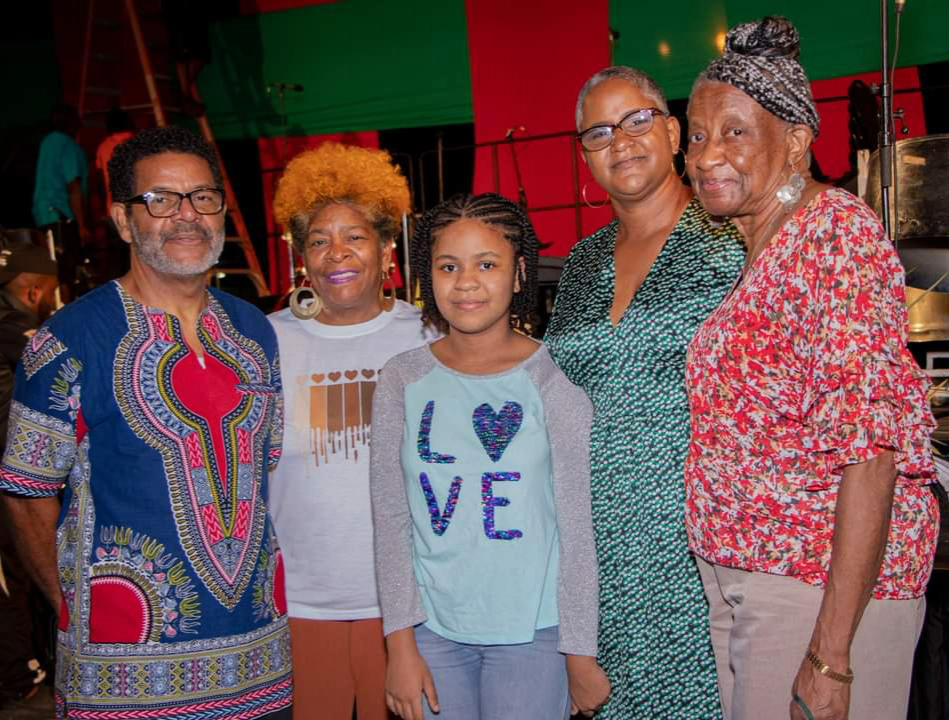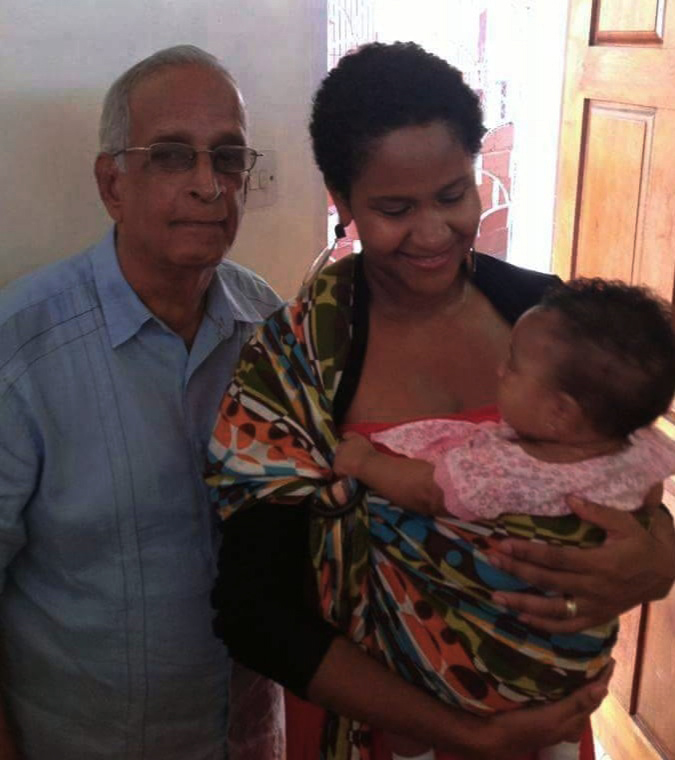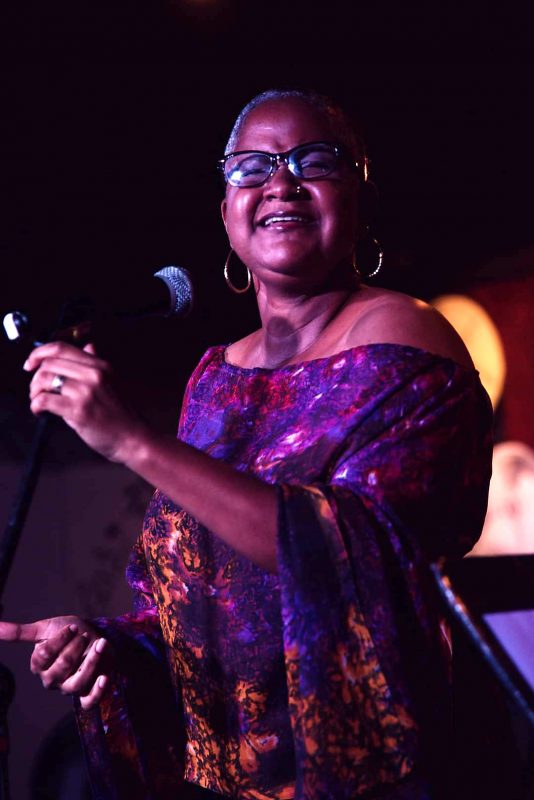Trinidad and Tobago-based Guyanese musician, writer and emerging poet Ruth Osman, 42, is poised to publish by mid-year, her first book of over 30 poems she has composed over the years as she continues to explore her creativity.
“I have always been writing poetry as a hobby,” she said. “During the height of the Covid-19 pandemic, I couldn’t meet with my band. I started to use poetry as an outlet to express myself where previously I would have let out in song and music. I was writing like a madwoman over the last two to three years and some of my better poems are going to be in that collection.”
It is to be published by Bamboo Talk Press in Trinidad.
Osman, a known flautist, songwriter and singer, is at present, a speechwriter, researcher, and public relations person at the Ministry of Public Utilities in Trinidad and Tobago. Osman told Stabroek Weekend, she was grateful to have a job she likes.
“As an artist, I also consider myself a cultural entrepreneur and as somebody who has ideas and stories and ways of perceiving a reality that I want to share using a variety of mediums including poetry,” she said. “Poetry has this beautiful way of getting to the root of life of who we are and why we live, through metaphors and symbolisms. Song is interesting because I get to use melody and poetry. I love that interplay.”
As a reader, thinker and writer, she said, “I have intentionally started crafting a path for myself which not only involves just writing songs, music and poetry but the idea of development and sharing those ideas through philosophy.” She recently shared some of her development ideals with the Trinidad and Tobago philosophical society.
The only surviving child of Yvonne and late journalist Raschid Osman, she was born when her parents were in their late thirties.
“They told my mom and dad not to try for another baby if I didn’t survive and if my mom wanted to live. My parents raised me with that sense of a third chance and the preciousness of life. I always felt loved in a particular kind of way,” she related.
“Being an only child, there is also that level of self-awareness because I had the time and space to focus on it. I spent a lot of time surrounded by art. As a child I spent a lot of time reading my father’s books, some adult in content, and by the time I was 13, I think I had gone through his entire library, listening to music of all genres, classic movies and church. I might have been deprived of things most children experience – like [the] rough and tumble play…, climbing trees, running in the road or yard with siblings. That really impacted who I am.”
Church, a major part of her life, was the nurturing ground for her musical and performance skills. She joined the children’s choir, started writing songs and music, and sang solos on stage. She later joined the worship team.
“Church was where I learned community, the importance of it and spirituality,” she stated. Her parents were pillars in the First Assembly of God Church where her father was a deacon and where her mother eventually became a pastor.
She attended St Margaret’s Primary and Queen’s College, but after first form, moved with her parents to Dominica. There, she went to the Dominica Grammar School and the Sixth Form College before returning to Guyana at 18 to pursue a degree in English Literature and Communications at the University of Guyana (UG).
A year and a half after her return to Guyana she became the church’s creative arts director, a position she held for a number of years. “All of that shaped who I was becoming, even the spiritual aspect. I have travelled far from what I was taught in terms of spirituality and the
Christian traditions. It is still the foundation of who I am because it gave me a love of spirituality, a willingness to delve into it, to live it and to appreciate the important role it plays in our lives,” she said.
“I will never say there is only one way to divinity and to God. I fully understand there are different ways to divinity and each is valid. I now pull from various traditions and incorporate them into my life. In a way I will always be evolving. The more you understand human civilization and cultures, it becomes problematic to see how people are taken advantage of and marginalised on account of religion. I’m now exploring Afrocentric and Indigenous People’s traditions and ways of looking and being in the world.”
The Dominica experience
Osman made lifelong friends at the Dominica Grammar School. “…When we talk it is like we were never apart. There were six of us who saw each other through secondary school and into the sixth forms. One of those is Michele Henderson, a flautist like myself, who is known as Dominica’s songbird. We both went to Kyrie School of Music,” she shared.
Kyrie held an annual musical production in which Osman took part. It gave her the formal start in performance. She had done the recorder and music theory lessons in Guyana and when she went to Dominica, she continued that journey. “Michele and I invariably ended up playing leading and supporting roles in those productions. It was my first in a scripted and choreographed production. That played a critical role in my development as a singer, songwriter, artist, performer. I sang in church but this was performance,” she said. “The flute and I have a love hate-relationship.”
Growing up she wanted to play the saxophone because she loves jazz and still does. Her father thought the instrument was too heavy for a young girl and recommended she play the flute.
“I started playing the flute and I think a little part of me is maybe a little bit resentful. I don’t practise the flute as much or half as much as I should,” she said.
“The flute is a stern mistress. She will let you know she is not feeling the love. So when I am playing, I’m not always as comfortable or satisfied as I should be with the outcome because we have that kind of tug-o-war going on between us.
“When I was playing in church I practised all the time because I played every Sunday. I’m aware of the richness in the flute and the position it can place me in as a flautist and a singer. Because I’m exploring other artistic ideas, the flute is once again taking the back burner. If I have a performance and I know I will want to play the flute, I choose songs I know so we can still shine.
“There was a time I could have done anything on the flute. Regaining that skill requires a lot of practise and I will have to make time for that but you are talking to a mom, a wife with a full-time job, who when she has free time, besides devoting it to her family also has to split it up between poetry, reading, writing, creating songs.”
Trinidad and Tobago
Osman moved to Trinidad to pursue a post-graduate diploma in arts and cultural enterprise management at the University of the West Indies St Augustine Campus as a means of escaping from a broken engagement. Her intention was to qualify, gain experience of another culture and use the time to heal. In Trinidad she fell in love with the richness of its culture. During internship work with cultural practitioners, she was enriched and inspired.
“I told myself I’m staying. I knew I wanted to be involved in the arts in some way and Trinidad felt like a good place to do that,” she noted. Of course Trinidad is not perfect but the culture was vibrant and thriving and there was room for me to learn, to experiment, to evolve and grow.
“My parents weren’t happy. I had to hold my ground with them. My mom, who has a strong personality, came to Trinidad to persuade me to return home. I had finished studying and mom was like, ‘This is not what we sent you to Trinidad for’. I didn’t have a job. I was staying with my father’s best friend, a Trini pastor and his family but I was on the verge of finding a job when she came so a lot of things were up in the air.”
As much as she loves Guyana, Osman said, she decided to stay to also escape the shadow of being her parents’ daughter and all of the expectations that went with that.
“I had to find myself and grow. I couldn’t do that in Guyana. Because I had also grown up in the church in Guyana I was not aware of other circles. In Trinidad I found myself in philosophical circles, a very diverse set of people; people who do not think only in a particular way,” she explained. “I didn’t know then there was that kind of people in Guyana where I felt cloistered and closed off. Once I came here and experienced those interactions, I couldn’t go back to what I knew.”
Osman’s first job was as a teacher at Elizabeth College in Tobago where she taught Literature and English. When she was offered the job and learned the school was not in Trinidad but in Tobago she said, “You could imagine how upset my mom was.”
Into her second year at Elizabeth College, she returned to Guyana for the Christmas holidays. When it was time to return to Trinidad and Tobago, she fell asleep at the Cheddi Jagan International Airport and missed her flight.
With no savings to buy another ticket and her mother’s refusal to get her another she taught at
Nehemiah Comprehensive School where she had worked before leaving to study in Trinidad.
She stayed in Guyana for over a year and saved up enough money to travel again. She obtained a
job as a reporter at the Trinidad Express newspaper before returning to Trinidad.
“I did reporting for a number of years until I realised I was not cut out for the hard and fast news
but the experience at Express served me well,” she said.
After that she did public relations for a number of companies and freelanced with the student press – a subsidiary of Trinidad Express, and some magazines.
Two years after she got married, Osman was pregnant and being the “typical starving artist at that time – freelancing,” she said, she panicked. “I was one of those women who didn’t plan on having a child because of what I wanted to do with my life. By the time our daughter came I was in love with her. Four or five months into my pregnancy, I took the job I now have. That was over ten years ago.”
Talking about her space in Trinidad, she said, “The running joke now is that everybody wants to be a Guyanese given the new developments with Guyana’s oil industry. There was a time I felt I didn’t belong in [Trinidad].”
One day when she was doing a stint at UWI, she said, a Trinidadian made her “feel less than. I knew it was because the individual saw me as an immigrant. In that one afternoon, every little comment, every little slight, when people told me that I don’t talk like a Guyanese, or when they found out I am Guyanese, came up, and a deep sense of not belonging came over me. My husband, a Trini, took a beating. I told him, ‘I walk these streets and I don’t feel like I belong. I want to go back home to Guyana where I can walk the streets and no one can tell me anything’.”
She wrote a song after that called, “Oh Brother”. It’s about how Caribbean people view each other. One of the lines is about people travelling through the Caribbean. “I’m here. What are you gonna do about it?” she intoned. “That was about the immigrant experience in Trinidad, specifically the Guyanese experience. I’ve had it pretty easy but I’ve friends who had bad experiences. I had to respond to it through my craft. That song is in my second album, ‘Elemental’.”
Yet, in a strange way she has found the community she would not have found in Guyana.
“I have friends and relationships I have cultivated over a period of time, who know the inner me and support and respect that and they give me that sense of closer to belonging,” she said. “I feel more rooted now, not because of the community I have gathered but because of who I am becoming. I think I have moved past the seed and sapling stage. I am standing tall in my shoes and there is comfort in that.”
